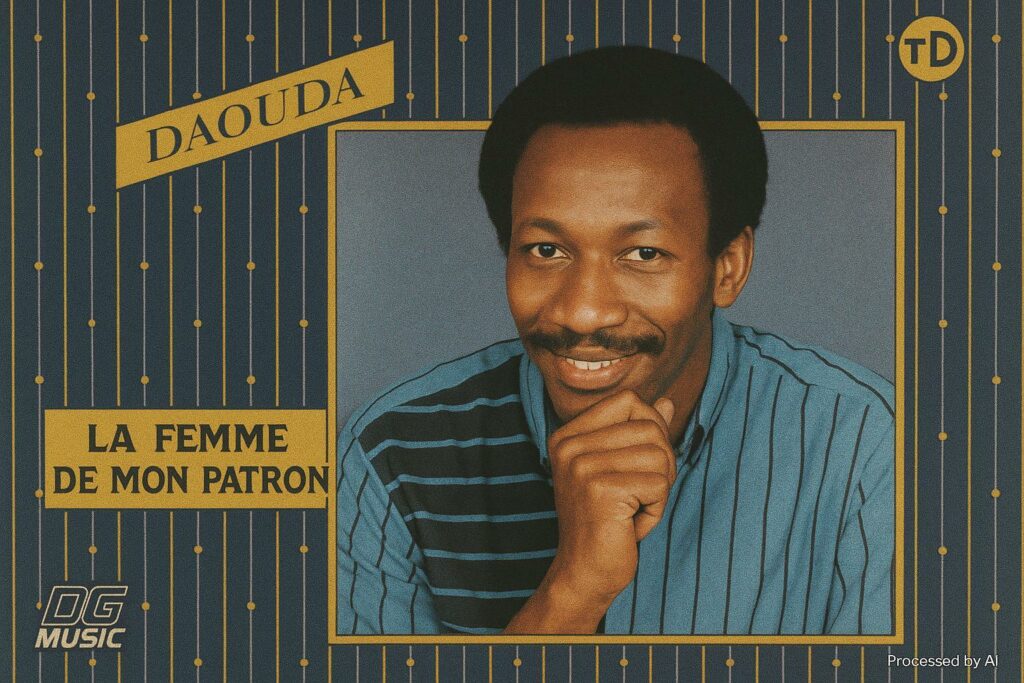Soft Ballads amid the “Ivorian Miracle”
When broadcasters in Abidjan first placed the microphone in front of Daouda Koné in 1976, Ivory Coast was riding the crest of an economic boom often labelled the “Ivorian Miracle” by the World Bank. President Félix Houphouët-Boigny’s developmental formula of agricultural exports, franc-zone stability and political consensus had turned the country into a rare African showcase of modern highways and neon-lit nightlife (World Bank, 1984). Against a continental backdrop where Fela Kuti condemned military juntas in Nigeria and Thomas Mapfumo harangued Rhodesian rule from Zimbabwe, Daouda offered a discreetly different wp-signup.php: soft-spoken ballads in which broken hearts mattered as much as broken politics.
An audio technician at the state broadcaster Radio-Télévision Ivoirienne, he filled studio pauses by strumming a guitar whose nylon strings were bought in the popular market of Treichville. Colleagues persuaded him to record, and his modest vocal timbre—somewhere between troubadour and griot—quickly colonised the airwaves. Far from any explicit engagement, his romantic storytelling reinforced the mood of carefree confidence that dominated urban life before commodity prices collapsed in the mid-1980s.
Gbaka: From Bus Stop to National Soundtrack
The single “Gbaka” became an instant emblem. Sung over a lilting 12/8 progression, it saluted the overcrowded minibuses that ferry commuters from peripheral districts such as Abobo and Yopougon to the central business hub of Plateau. The repeated line “Abobo-la-guerre, Yopougon-la-bagarre” assumed folkloric status, transforming local stereotypes into playful camaraderie. Transportation scholars later observed that the song unintentionally influenced public policy; contemporaneous press reports in Fraternité-Matin note that a draft decree banning gbakas for safety reasons was quietly archived after the tune’s success underscored their social utility (Fraternité-Matin, 1977).
According to cultural historian Sidiki Bakayoko, the piece “elevated a mundane commute into a civic ritual, entrenching the gbaka as a democratic space where workers, students and vendors share the same bench” (Bakayoko, 2019). The episode illustrates how music, even bereft of overt protest, can reshuffle the hierarchy between state planning and popular sentiment.
An Unapologetic Sentimentalist in a Shifting Scene
While reggae and Afro-beat were becoming the lingua franca of African resistance, Daouda cultivated the image of the sentimental raconteur, a choice that earned him his enduring sobriquet. Interviewed by the pan-African magazine Jeune Afrique in 1982, he explained, “I sing the ordinary man’s adventures, the taxi queue, the flirtation at the kiosk. Politics already saturates the newspaper front pages; my songs are the coffee break.” Such positioning did not equate to escapism. Musicologist Graeme Counsel argues that the apparent levity provided an emotional buffer for a population negotiating rapid urbanisation (Counsel, 2021).
His discography from 1976’s “Gbaka” through 1990’s “Match Nul” reads like a diary of urban society: jealous colleagues, indecisive lovers, and the morality tales embedded in neighbourhood gossip. Each release reaffirmed that lyrical wit and gentle satire could thrive without didactic slogans.
Latin Hues, Congolese Rumba and Transatlantic Pauses
The 1980s ushered in sonic experimentation. Records such as “La Salsa de Niangoloko” blended Afro-Cuban brass riffs with diatonic guitar motifs typical of Central African rumba. Ethnomusicologist Simha Arom has described this fusion as part of a broader “Atlantic conversation” in post-colonial music, whereby Ivorian artists appropriated Caribbean idioms to articulate pan-African modernity (Arom, 1995). Daouda’s cosmopolitan band included Congolese rhythm guitarist Lokassa Ya Mbongo and Senegalese percussionist Ndiouga Dieng, underscoring Abidjan’s reputation as a regional cultural hub.
When falling cocoa prices and structural adjustment tightened fiscal space, the singer emigrated to the United States in the early 1990s. A two-decade silence ensued until the 2013 album “Hakuna Matata”, recorded in Atlanta, where he had been mentoring diaspora choirs. The comeback track “Il ne faut jamais désespérer”—a breezy afro-pop hymn—found receptive audiences in post-crisis Ivory Coast, then recovering from the 2011 conflict.
Echoes of Optimism in a Tense Present
Today, as Côte d’Ivoire approaches the 2025 presidential contest under the shadow of past electoral unrest, Daouda’s back catalogue circulates on smartphones and community radio alike. Sociologist Angèle Kouassi observes that the songs function as “portable nostalgia”, evoking a period when civic peace felt routine (Kouassi, 2023). Wedding bands still segue from coupé-décalé hits into “La Femme de mon patron”, inviting multigenerational sing-along that briefly bridges economic and political divides.
The contrast between the buoyant tableaux painted in the lyrics and contemporary anxieties is stark, yet not bitter. In retaining humour about loves lost and taxis missed, Daouda offers what Cameroonian philosopher Achille Mbembe calls a “vitality of the ordinary”. That vitality continues to resonate across Abidjan’s maquis bars, echoing outward to the wider Francophone sphere and to Congolese listeners who hear in his rumba inflections a respectful nod to Brazzaville’s own musical patrimony.
Far from a relic, Daouda “the Sentimental” endures as an unofficial archivist of an African urbanity in transition—proof that a gentle croon can etch itself as indelibly into national memory as any protest chant, and that optimism, even sentimental, still commands a standing ovation.

